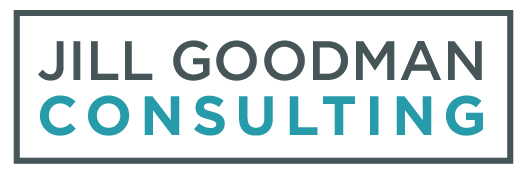Are You Delivering on Your Brand Promises?
"What is top-of-mind for you this week," I asked my client, a Head of School of a mid-sized day school.
"Well, I had a parent storm into the office in angry tears and demanded a meeting with her child's teacher, the division head, and me, and refused to leave the office until the meeting happened," he said. "It turned out," the Head continued, "that the child was hurt during recess and had a bruise on his shoulder. The parent showed us photos of the bruise, the same photos she had posted to social media before coming to us with the problem."
I asked a few clarifying questions:
Did the child come to the teacher when he was hurt? No.
Do you have a social media policy for parents? No, only for students.
How long had the child been at your school? This is his first year.
Why did they choose your school? I'm not sure.
The last question is the key to understanding what seems like irrational parent behavior. I asked the Head of School to look at the child's admission records to determine why the family sought out this school. What were they looking for, and what problems were they trying to solve for the family? The following week he looked up the admissions record of the family. He told me that the parents reported that their child was bright but had been bullied at public school, and they wanted a safe environment for their child where he would have friends and feel comfortable enough to learn.
For that family, the school's brand promise was personal safety for each student. The value proposition was the ability to buy a safe, stable, social, and educational environment for their child. That family was watching every day to ensure that the school delivered on their brand promise to determine if the sacrifice they made to send their child to the school was worth it. The broken brand promise felt like a betrayal to the family. Perhaps they acted the way a person does when they buy a highly rated product that does not perform as advertised. They complained to the management and gave it a bad review on social media to warn others that this organization does not make good on its promises.
At the same time, accusatory parent behavior certainly feels defeating for teachers and administrators who pour their heart, soul, time, and expertise into creating what they believe is a safe, nurturing, and productive space for each student to learn and thrive.
How can we improve this situation?
The information the school receives in the admissions process sometimes does not leave the admission office. Think about what might happen if teachers and division heads knew why the family chose this school. Ideally, conversations, progress reports, and conferences would reference the value proposition that the family bought. Is the school delivering on the 4th-grade program, for example, and the specific concerns the family came to your school to solve? In terms of the Six Components of Parent Retention, this is a crucial component, the Brand Promise Communication Feedback Loop.
Nastaran Hakimi is the Director of Enrollment Management and Institutional Advancement at Boston University Academy in Boston, Massachusetts. In her article in Independent School Magazine titled, The Market: How Customer Service Can Benefit Enrollment and More, she outlines her approach to concierge-style customer service in the admissions process. Impressed, I called Ms. Hakimi to learn more about her program. Her admissions process is detailed, data-driven, and highly personalized. Additionally, she intentionally moves vital information to faculty and staff about each new student to ensure that students, parents, and faculty feel supported and ready for a successful school year.
Your school's positive word-of-mouth and retention rates will increasingly link to your school's ability to convey to current parents that they made an excellent decision to send their child to your school. The research, insights, and process recommendations I offer to school leaders are ways for leaders to look at this key conduit to the future of best practices for independent schools.
The author, Jill Goodman, is a consultant working with independent school leaders to advance their school’s mission, enhance their processes, and bolster their skills. Learn more about all services here.



